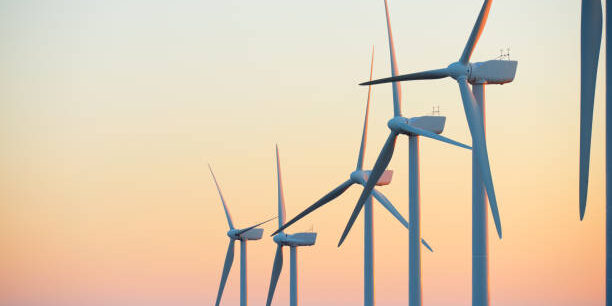Europe’s wind energy sector is gaining momentum, with a renewed focus on bolstering the continent’s wind supply chain. Recent initiatives and investments are driving progress, but continued efforts are crucial to meeting Europe’s ambitious renewable energy targets.
A pivotal moment came with the introduction of the Wind Power Package in October 2023, a comprehensive plan by the European Commission that outlines 15 strategic actions to enhance the competitiveness and capacity of Europe’s wind energy sector. This package is integral to the broader goal of achieving 36 gigawatts (GW) of wind energy manufacturing capacity by 2030, as outlined in the Net Zero Industry Act. The plan also emphasizes the importance of producing European wind turbines domestically, a step seen as essential for both meeting renewable energy targets and maintaining Europe’s global industrial competitiveness.
In response to this initiative, a wave of new investments has surged across Europe. Major wind turbine manufacturers have announced plans to build new facilities, which are expected to create thousands of jobs and significantly boost manufacturing capacity. These investments are not just about job creation; they are critical to meeting the growing demand for wind turbines and the infrastructure that supports them.
Financial institutions have also played a key role, with significant backing provided to support the expansion of the wind energy sector. These investments are aimed at increasing production capacity, particularly in the manufacturing of essential components like cables and advanced technologies, which are vital for the offshore wind industry.
However, the journey is not without challenges. The influx of lower-priced wind turbines from outside Europe, particularly from Chinese manufacturers, poses a significant threat to the competitiveness of European producers. These imported turbines are often priced 30-50% lower than their European counterparts, and come with deferred payment options, making them highly attractive to buyers. This has led to calls for urgent action to address these competitive imbalances and protect the sustainability of Europe’s wind industry.
Member states across the European Union have shown strong support for the Wind Power Package, with 26 countries endorsing the European Wind Charter. This commitment is translating into real progress, as countries implement reforms to improve auction designs, streamline permitting processes, and support infrastructure investments.
As Europe continues to strive toward its renewable energy goals, the ongoing efforts to strengthen the wind supply chain will be crucial. With the right strategies and sustained investment, Europe is well-positioned to lead the world in wind energy, ensuring a sustainable and prosperous future.
#ICTTMNews #BreakingNews #EnergyNews #Sustainability #SupplyChainUpdate #RenewableEnergy #GlobalNews







